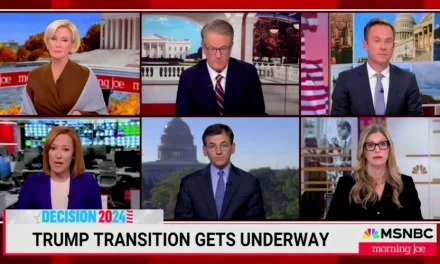Flying has become an integral part of modern life, with millions of travelers boarding planes daily for business and leisure purposes. As the aviation industry continues to evolve, so too does the experience of air travel. Amongst the various seating classes offered by airlines, First Class stands out due to its reputation for luxury, comfort, and exclusivity. But as more airlines introduce ways to make luxury travel attainable through loyalty programs and competitive pricing, a pressing question arises: Is First Class for everyone? One travel enthusiast sheds light on this intriguing subject.
To understand the allure of First Class, one must first delve into the overarching experience it provides. First Class seating typically means spacious seats that convert into fully flat beds, gourmet meal options, luxurious amenities, and personalized service. The lack of crowded cabins adds to a serene flying atmosphere. However, these benefits come at a steep price—perhaps thousands of dollars more than a regular ticket. For many, including everyday travelers and business people who bristle at the idea of spending excessively, the question remains: Is indulging in First Class a privilege that only a select few can afford?
To explore this question, a frequent traveler named Mike shared his perspectives on the possible democratization of First Class travel. Mike—a self-proclaimed travel aficionado with an eye for deals—believes that First Class is increasingly reachable for all kinds of travelers, albeit not without some strategy. From utilizing frequent flyer miles to strategically booking flights, he has mastered the art of snagging premium experiences without breaking the bank.
“The key is being flexible and doing your homework,” Mike asserts. He emphasizes the importance of understanding the dynamics of airline loyalty programs and knowing when sales are likely to be available. “Most people don’t realize that many airlines run promotions or offer ways to earn points that can be accumulated over time.” Viewers may find comfort in knowing that rewards programs can turn the seemingly unattainable treat of a First Class seat into a tangible possibility.
In recent years, many airlines have tweaked their programs to offer accessible options for First Class travel. For example, some airlines allow you to use two or three flight segment upgrades, allowing frequent flyers to foot a fraction of the price compared to outright purchasing a premium seat. Furthermore, special offers for selected routes may allow them to purchase First Class tickets at a vulnerable rate compared to securing a broader route.
While these strategies aren’t overly complex, they do require planning and knowledge—something that Mike excels in. He suggests that travelers focus on routes where competition is fierce among airlines, as this may lead to lower prices across all classes. “Some airlines are known to launch aggressive sales when they see other carriers discounting their prices on certain routes. Passengers can benefit massively if they’re in the know.”
However, it’s not solely about the economics. The psychological aspect can play a significant role as well. The sheer experience of flying in First Class can be exhilarating, and the prestige associated with it is undeniable. It draws a specific demographic that relishes being able to afford a luxurious experience. According to Mike, it gives one a sense of accomplishment and reward, especially after enduring long hours at work.
“In the end, First Class is not just about the seat; it’s about the whole experience,” Mike reflects. Many customers who have tasted this specific travel luxury experience feel a sense of satisfaction that ordinary economy class might not provide. The curated experience of high-end service encourages a calm and relaxing atmosphere that can reduce travel fatigue.
But let’s flip the question of accessibility. Is First Class fundamentally necessary for every traveler? Some experts argue that it is not. Ever since the pandemic, there’s been a notable shift in travel behaviors and expectations. There is a growing recognition that travelers can enjoy comfortable experiences without the need for extravagant spendings. With legroom, meal service, and on-demand entertainment often improving in economy class, travelers are increasingly weighing the considerable financial costs against the benefits.
As choices broaden in the market, what was once reserved strictly for luxury travelers is now dipping its toes into the average consumer pool. Mike’s anecdotes offer long-time travelers hopeful insights that, with careful planning, First Class doesn’t have to be the exclusive domain of the affluent but can be a coveted experience made readily accessible through foresight and consideration.
Fractional approaches to travel have emerged too, such as buying a premium ticket for shorter flights or during off-peak times. Travelers can explore the idea of upgrading on special occasions—honeymoons, anniversaries, or major milestones in life. Airlines have recognized the demand for such adaptations, creating frameworks for travelers to book premium services on their terms, as opposed to those predetermined by the airline’s categorization.
Further reinforcing the accessibility of First Class seats is the growing trend of ‘pop-up’ airlines that cater to markets and travelers seeking just this type of experience. Various startups are increasing options, challenging legacy carriers to rethink their premium offerings. This competition is driving prices down, making it feasible for a broader base of travelers to enjoy the fruits of First Class experience.
Nonetheless, perception persists around exclusivity and luxury being tied to First Class travel. There are cultural connotations that suggest premium cabin travel is for the elite. People may feel stigmatized by the lavish lifestyle displayed by those in First Class as if it is a marker of success. In this context, Mike reflects on the social psychology, claiming that consumers seek and share their experiences online differently today than a decade ago, revolutionizing how travel stories are told and perceived. Social media platforms bolster the portrayal of First Class travel experiences, which in turn fuels travelers’ desires to partake in such moments.
Ultimately, hashing out whether First Class is for everyone does not lead to a straightforward conclusion. For some, the luxury, pampering, and tranquility of First Class travel are nothing short of aspirational. Conversely, for others, it remains a question of budget versus genuine interest. While the financial implications provide necessary constraints, they don’t completely shut out possibilities for the average traveler. Those keen on elevating their experience without exorbitant spending have the potential to uncover countless creative solutions to tap into First Class travel.
As the conversation around air travel evolves and new ways to access premium travel appear, the essence of First Class experiences will endure based on individual preferences and perceptions. For those willing to learn and adapt, the doors to luxury are gradually swinging open—a welcome development in the realm of travel.
In the end, whether First Class truly belongs to everyone remains a philosophical debate. The opportunity exists for many, with the caveat that understanding the mechanisms that underlie air travel will empower more travelers to make informed choices. Those willing to go the extra mile in effort and research will find that the privilege of First Class may not be as distant as it seems.
































